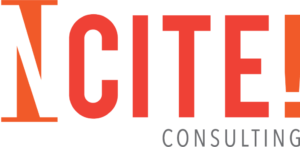One thing about the nonprofit sector is we’re all just working with what we have. Larger organizations in major cities are likely to have a more substantial donor base and, by extension, a more substantial budget. For these reasons, prioritizing professional development in a smaller organization can seem impossible.
After all, those funds could be allocated to other areas of the mission.
But I’m here to tell you professional development isn’t only for the big players. I’d argue funding this area is more important for smaller organizations with fewer staff.
Why?
Because staff knowledge is one way you expand your reach and impact. In this post, we’re going to dive into prioritizing professional development when you’re working on a limited budget. Grab your pen, and notebook, and let’s get into it!
Okay. Here’s where we start.
First, you’re going to want to limit what materials (courses, webinars, texts, etc) will be covered under your professional development criteria.
While it would be great to support all extended education, that’s simply not realistic. With a smaller budget, you’ll have to be more restrictive on what can and cannot be covered by your organization. In these cases, I always suggest giving staff the option to submit proposals for courses that may not fit neatly into the budget criteria. You still want to retain some wiggle room for these classes or programs because their knowledge may prove beneficial in the future.
Onto the next point…
Limited budgets often mean limited staff and limited time. Because we all get caught up in our to-do lists, sometimes making professional development an organizational requirement is the only way to ensure the funds are used.
I know this may seem a little authoritarian. People should decide for themselves if they want to continue or add to their education and resume, right?
What you have to consider is that the reason your staff aren’t using their professional development funds isn’t due to a lack of interest. Instead, it’s because your staff isn’t sure how they’d find the time to properly engage with any extended learning. But if it’s a requirement, your team is more likely to find space on their to-do.
If your professional development budget is limited, a great way to get the most bang for your buck is through group programs.
Instead of each staff member registering for a unique course, offer several group courses to your staff. Or, even better, identify a skill that is lacking in your organization and offer a program that covers this topic. Not only will the organization fill in a skills gap but your staff will have the chance to expand their knowledge and potentially develop interest in continued education.
And, in the end, that’s what matters most.
If you’re interested in developing a realistic budget for your team or a development plan, schedule a free 30-minute consultation with me to see what we can get done. You’re not in this alone!


